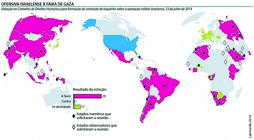Abstract
This article compares and analyses foreign policies of Brazil and South Africa in the aftermath of the civil-military dictatorship and the apartheid regime, respectively. To this end, it sheds light on the debate on race and national formation in order to understand the relevance of the human rights issue for the construction of new foreign policy narratives. The renewal of the diplomatic credentials in a post-Cold War scenario fostered the signature of the main human rights treaties by both countries in the 1990s. In the 2000s, Brazil and South Africa played a key geopolitical role in the South, thus becoming more prominent in the global scenario. However, the current political and economic crisis reveals the limitations of these narratives and the institutional fragility of the democratization processes which underpin them.
Keywords:
Comparative foreign policy; human rights foreign policy; democratization processes; Brazil; South Africa

 Thumbnail
Thumbnail
 Thumbnail
Thumbnail
 Fonte: elaboração própria com base em dados retirados de Sítio web Conectas, 2017; Sítio web Universal Rights Group, 2017; Sítio web Conselho de Diretos Humanos, 2017.
Fonte: elaboração própria com base em dados retirados de Sítio web Conectas, 2017; Sítio web Universal Rights Group, 2017; Sítio web Conselho de Diretos Humanos, 2017.
 Fonte: Conselho de Diretos Humanos da Organização das Nações Unidas, 2014.
Fonte: Conselho de Diretos Humanos da Organização das Nações Unidas, 2014.